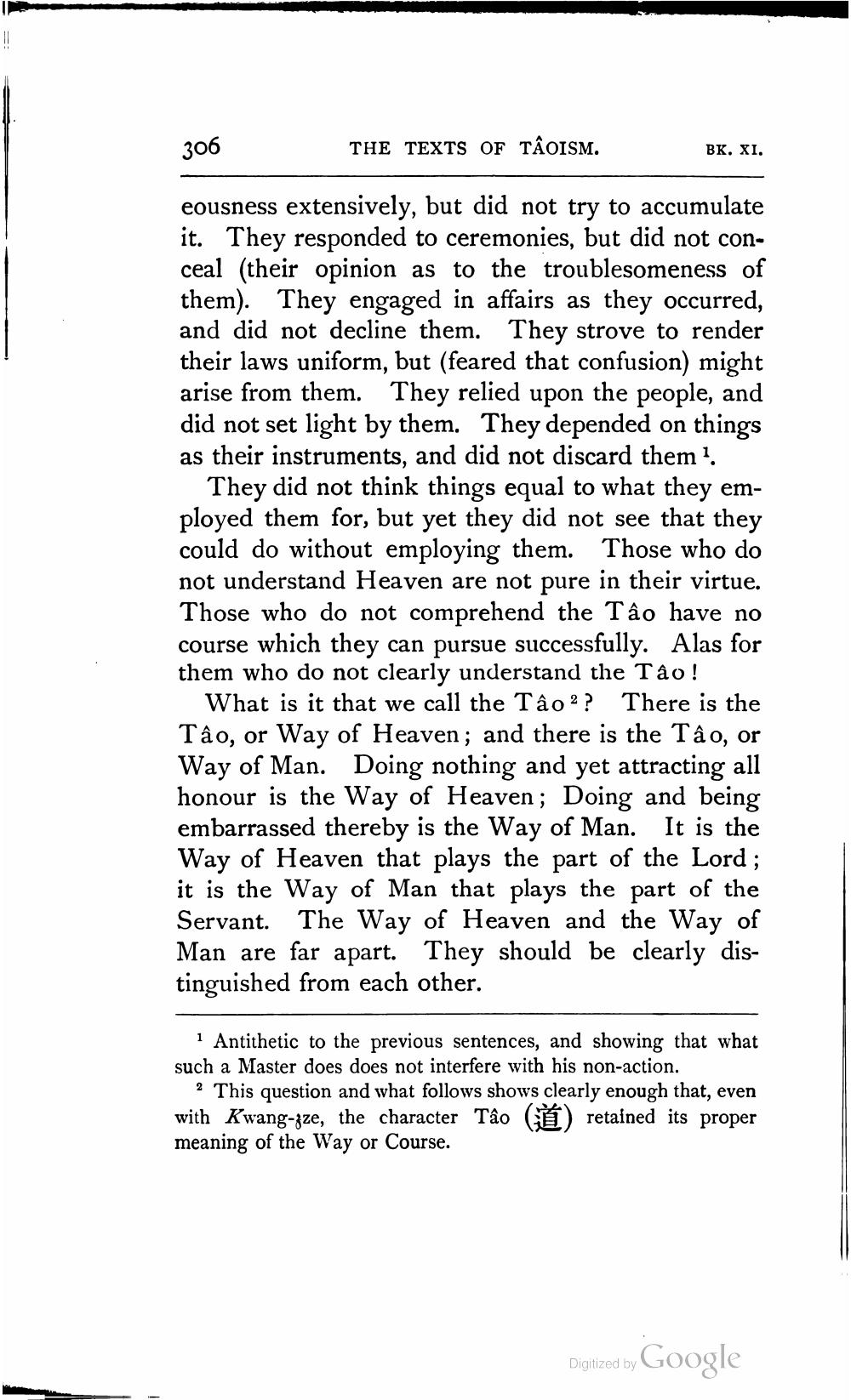________________
I
=
306
THE TEXTS OF TÂOISM.
BK. XI.
eousness extensively, but did not try to accumulate it. They responded to ceremonies, but did not conceal (their opinion as to the troublesomeness of them). They engaged in affairs as they occurred, and did not decline them. They strove to render their laws uniform, but (feared that confusion) might arise from them. They relied upon the people, and did not set light by them. They depended on things as their instruments, and did not discard them?
They did not think things equal to what they employed them for, but yet they did not see that they could do without employing them. Those who do not understand Heaven are not pure in their virtue. Those who do not comprehend the Tâo have no course which they can pursue successfully. Alas for them who do not clearly understand the Tao!
What is it that we call the Tâo 2 ? There is the Tâo, or Way of Heaven; and there is the Tâo, or Way of Man. Doing nothing and yet attracting all honour is the Way of Heaven; Doing and being embarrassed thereby is the Way of Man. It is the Way of Heaven that plays the part of the Lord ; it is the Way of Man that plays the part of the Servant. The Way of Heaven and the Way of Man are far apart. They should be clearly distinguished from each other.
Antithetic to the previous sentences, and showing that what such a Master does does not interfere with his non-action.
2 This question and what follows shows clearly enough that, even with Kwang-zze, the character Tâo (Ó) retained its proper meaning of the Way or Course.
Digitized by Google




